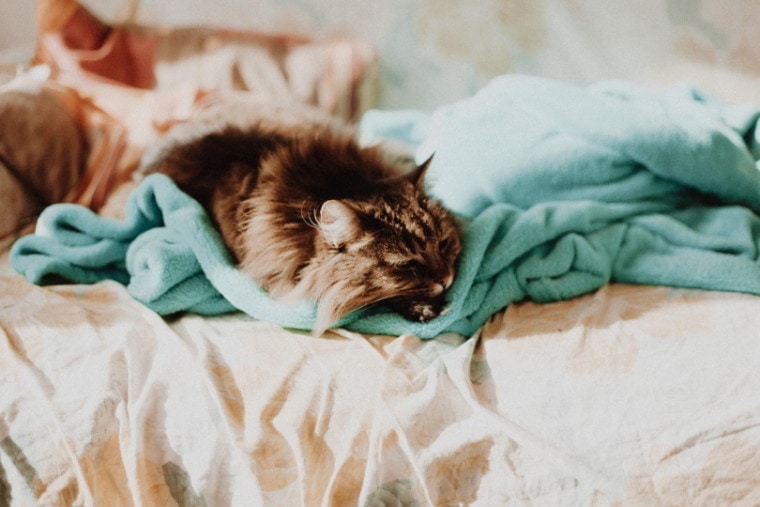
Click to Skip Ahead
Cats have a lot of unusual habits: some of them are endearing, and some are maddening. And then there are those habits that are endearing to some but infuriating to others. Sucking on blankets is one activity that divides the opinions of owners. It can look cute and delightful, possibly even relaxing, but if you have had to wear a sweater with sopping sleeves you will know that it isn’t always as cute as it first appears.
While there is nothing inherently bad for a cat in the suckling of blankets, it may be an activity that you want to prevent or at least one that you would like to better understand before deciding whether to discourage it or not.
The 6 Common Causes for Cat Suckling
1. Separated From Mom
Like most of the reasons on the list, this is a somewhat contested theory, but it goes like this. Suckling mimics the action of a kitten suckling at its mum. The kitten would knead around the teat area to stimulate milk production and suckle to get milk out of the teat. If you watch a cat when it suckles on a blanket it is replicating these actions, leading many owners to claim that it occurs when a kitten is removed from its mother at too young an age.
This is a contested theory because there are plenty of examples of cats and kittens that remained with their mum until they were several months old but that still suckled at blankets.
While the action certainly seems to replicate that of suckling a mother cat, it may not be related to how old the cat was when removed from its mum.
2. Oriental Breeds Are More Likely Than Others
For some reason, oriental breeds like Siamese are more likely to suckle than others. In these cases, some research does suggest that the cats are more likely to have been removed from their mothers early or they came from a smaller litter. Kittens from a smaller litter would get more time suckling before they were moved out of the way for a sibling to take over, which may explain this.
Oriental breeds are also known to have a longer weaning period than other breeds, which means they are more likely to be removed from their mother early, possibly lending credence to the argument that wool suckling is more likely in kittens that were stopped from nursing too early.
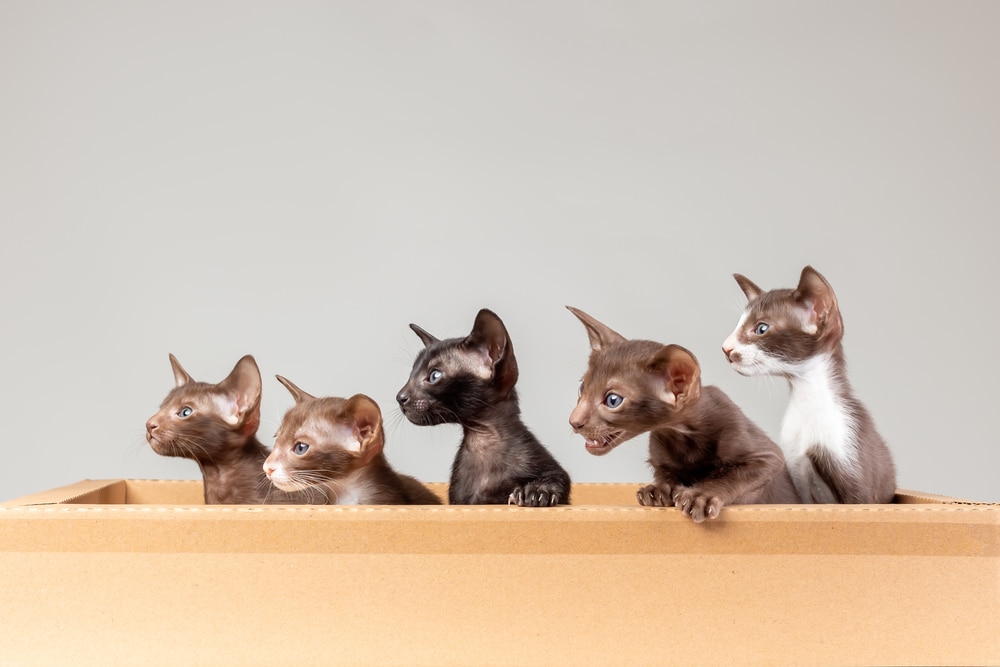
3. It’s Relaxing
If you’ve seen a kitten suckling its blanket or another woolen item, you’ll likely have noticed the sense of pleasure and relaxation that it brings. The action is reminiscent of suckling on their mother: a stress-free time and an occasion that they really enjoyed. Even if your cat leads a stress and anxiety-free life, it might be suckling simply because it relaxes them.
4. Stress Relief
Kittens generally feel safe. They had the protection of their mother and didn’t really have to worry about anything. As such, when faced with overwhelming stress or anxiety, they might suckle because it reminds them of this stress-free time in their life. As a one-off or occasional behavior, this isn’t too concerning, but if your feline friend is suckling regularly because they are constantly stressed out, it is a sign that you need to do something.
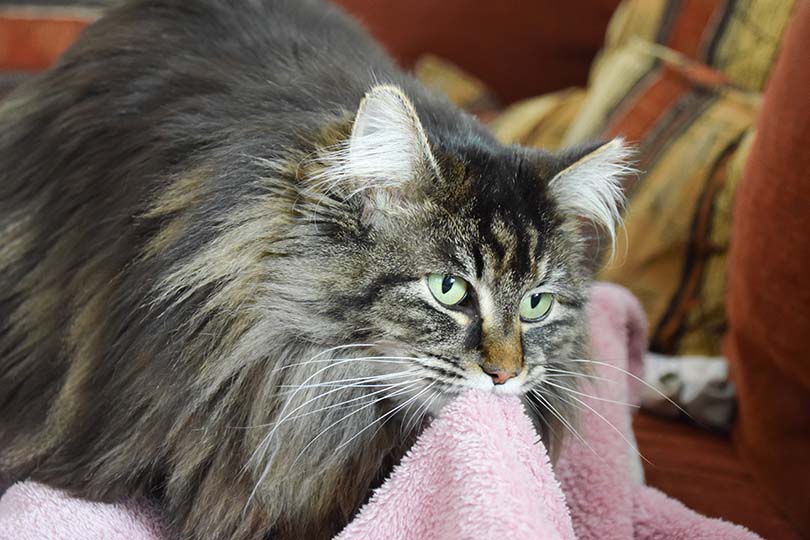
5. Showing Love
A cat gives suckling and kneading all of its attention. If your cat likes to suckle a blanket or cardigan that is on or attached to you, it could be a sign that they completely trust you and that they have a similar feeling of love for you as they did for their mum.
6. Habit
Whatever the initial cause of suckling, if a cat continues to suckle, especially at certain times or following certain events, it can quickly become a habit. In these cases, your cat isn’t really suckling for any reason except that it’s what they’re used to doing.
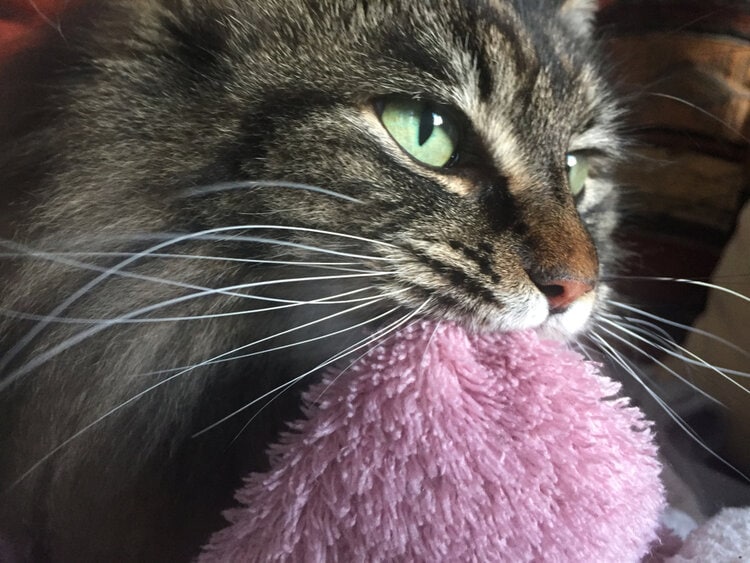
The 4 Ways to Prevent Suckling
Most cats grow out of blanket suckling, usually at the age of about 12 months when they become an adult, but it may take a little longer in some felines. Some cats may continue to do it throughout their life, and as long as it isn’t causing them harm and isn’t an underlying sign of anxiety or illness, it isn’t really a problem. However, if the suckling becomes more intense or more frequent, or if your cat starts to chew and even ingest the wool, it can be an issue that needs resolving.
Consult a veterinarian to ensure there is no medical cause for the suckling. If they do confirm that it isn’t a medical problem, there are some steps you can take in a bid to try to prevent or limit it.
1. Limit Your Cat’s Blanket Access
If your cat has a favorite or single blanket that it suckles, hide it or get rid of it completely. If they only suck blankets that are in a particular location, restrict access to that location or stop putting blankets there.
2. Don’t Encourage the Behavior
You shouldn’t reinforce the suckling behavior, either. A lot of owners pet or engage with their cats while they suckle, in the belief that they are stressed. Even if it is a sign of stress, giving them love only serves to reinforce the feeling. If your cat is feeling anxious and you give them love while they suckle the blanket, they will be inclined to do it again. Rather than giving love, ignore the behavior and do not reprimand or punish your cat for suckling because this can lead to other potentially more serious behavior problems.
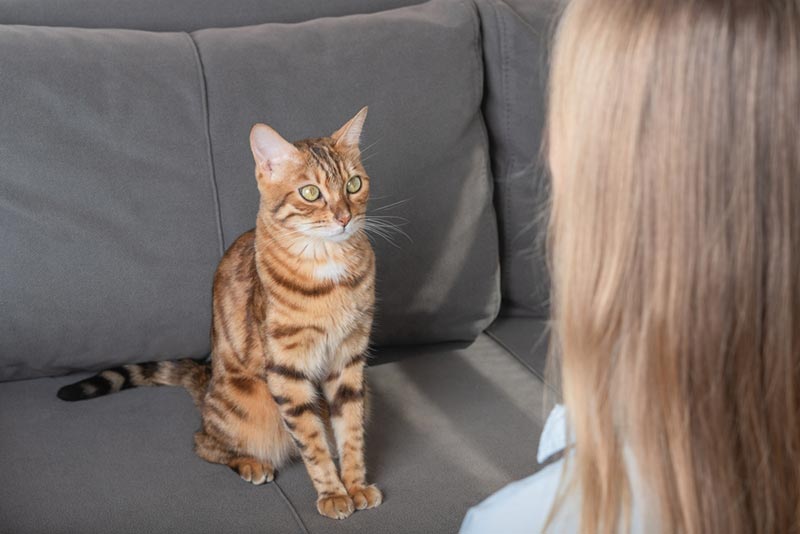
3. Provide Distractions
Better than ignoring the behavior is to provide some kind of distraction. Get your cat’s favorite toy out and play with that.
4. Provide Stimulation and Activity
Cats get bored easily, especially indoor cats, and this can lead to anxiety. If this anxiety is causing your cat to suckle a blanket, then enriching their lives with entertainment and activities is a good way to remove the need to suckle. Ensure you have plenty of cat toys, scratching posts, cat grass, and other items that they can use to fill their time. Try to make time to play every day, too. Not only does this enrich their lives with play, but it reinforces the bond between you both.
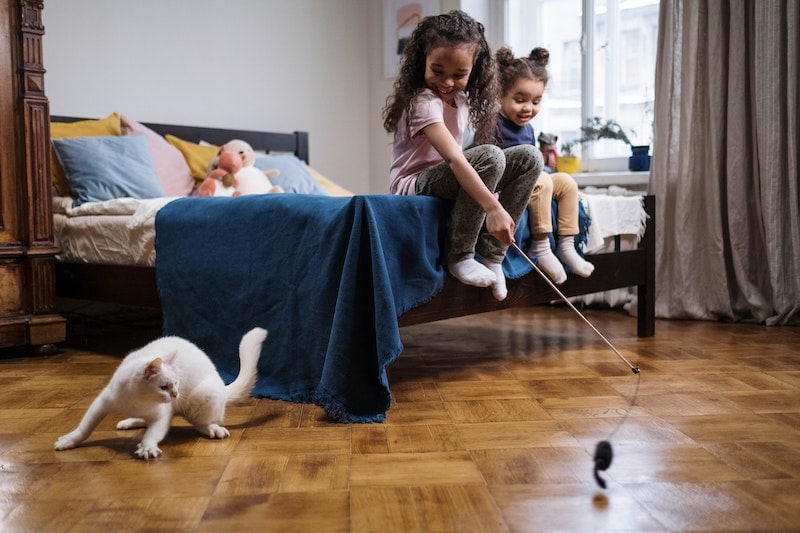
Why Does My Cat Suck on Blankets?
Cat suckling is relatively normal behavior and isn’t a major cause for concern unless your cat ingests the wool or the suckling becomes excessive or too frequent. Potential causes include anxiety or a show of love and affection towards you. But it could arguably also be a sign that a kitten was removed from its mum too early and was basically weaned off nursing too early in its development.
The behavior will usually stop naturally when a kitten reaches adulthood or a little after, but it can become a habit that pervades adult life. Ensure your cat is not stressed, that it has a life enriched with play and activity, and that you don’t reinforce, or indeed punish, the behavior. If wool suckling is excessive, you should consult a vet to ensure there is no medical reason for it.
Featured Image Credit: StockSnap, Pixabay






